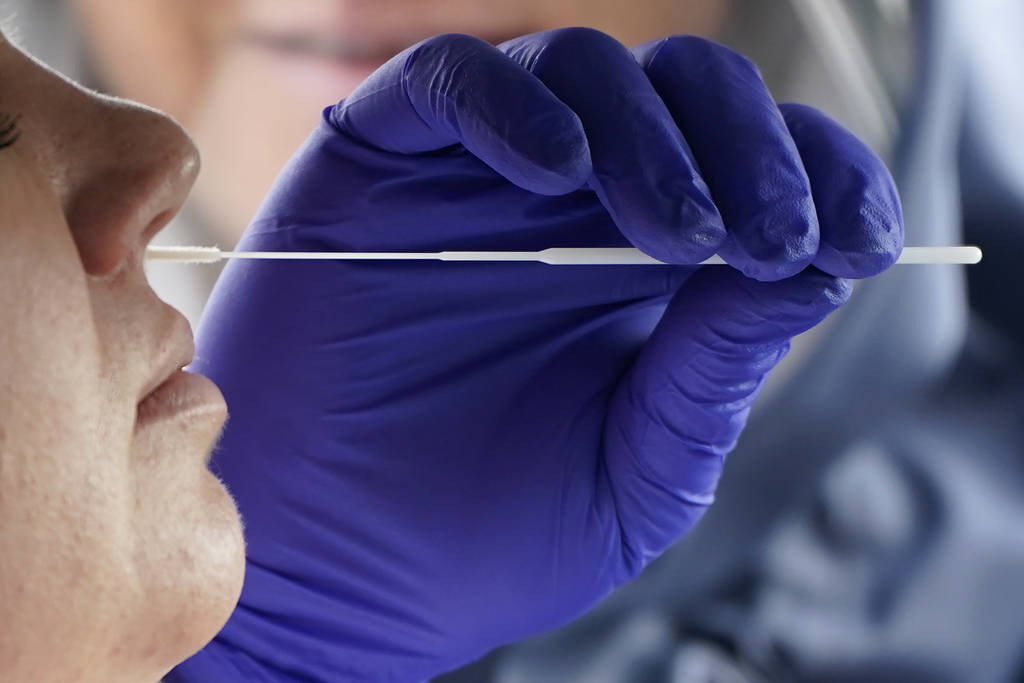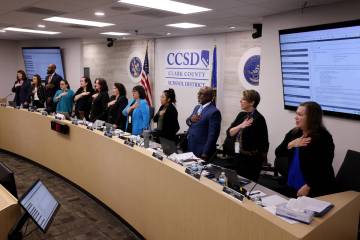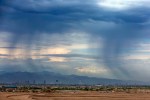EDITORIAL: Virus news: It’s not all bad
The holiday season is upon us, yet the mood remains somber and trying as confirmed coronavirus cases skyrocket in Nevada and elsewhere. A festive holiday to celebrate friends and family has become another casualty of the pandemic, as health experts warn Americans not to travel and to limit gatherings. More lockdowns and disruptions loom.
But the relentless din of bad news must not blot out the persistent rays of sun straining to penetrate the gray sky. There are indeed some hopeful signs pertaining to the pandemic, and this week is a good time to recognize and celebrate them.
■ If you do get sick, your chances for recovery have greatly improved.
While hospitalizations are on the rise, doctors are much better prepared to successfully treat COVID patients. The Mayo Clinic reports that “coronavirus patients now stay an average of five days,” The Wall Street Journal reported last week, “half as long as in March.” A hospital chain in the Midwest, where the virus has gained an especially persistent foothold, reports that pandemic-related stays are down 26 percent since May, the Journal noted. Such findings “are consistent with anecdotal reports from doctors saying that new tools and a better understanding of how COVID-19 attacks the body are helping improve medical outcomes.”
■ COVID-19 death rates are falling around the world.
Many virus mortality statistics can be misleading because they are calculated using confirmed positive tests. In fact, public health experts believe that testing is identifying only a small portion of disease carriers, which means COVID is far more prevalent than most people realize. Nevertheless, the number of fatalities as a percentage of identified cases has dropped significantly since April. Numbers monitored by modelers at the University of Washington suggest that “that the number of fatalities per infection might have fallen by 20 percent,” Nature magazine reported this month. The website InternationalSOS reports that German researchers found the fatality rate in that country “has declined in all age groups, and the older age groups drive the overall reduction.”
■ Many more people may have some natural protection from the virus than previously thought.
A study by Public Health England of front-line police and fire workers found that natural immunity could be found in as much as one-quarter of the population. “The implication is that there is a population of people who are protected from COVID who are not being picked up by the antibody studies,” Dr. Peter Wrighton-Smith of Oxford Immunotec told the Daily Mail last week. The paper reported that researchers also found that “none of those with high T-cell responses became infected with COVID in the following four months — suggesting this part of the immune system is an effective protective factor.”
■ The emergence of promising vaccines in less than nine months is a public health miracle and a tribute to the American health and pharmaceutical industries.
Back in April and May, President Donald Trump insisted that an effective COVID vaccine could be developed by the end of the year. Such a thought was considered ludicrous in some circles — traditional vaccine development can take a decade or longer. “Experts say that the development, testing and production of a vaccine for the public is still at least 12 to 18 months off,” an NBC News “fact check” of the president’s comments concluded last spring, “and that anything less would be a medical miracle.” Yet just six months later, Pfizer announced that trials have proven 90 percent effective. The company is seeking emergency approval for its vaccine from the Food and Drug Administration, and it could be available next month.
None of the above is a reason to abandon the common-sense precautions that we must all take to help slow the spread of COVID-19. Complacency will only embolden the virus. But as Thanksgiving approaches, it may offer some level of comfort to know that, despite the grim statistics, progress has been and is continuing to be made in dealing with this once-in-a-lifetime scourge.




























